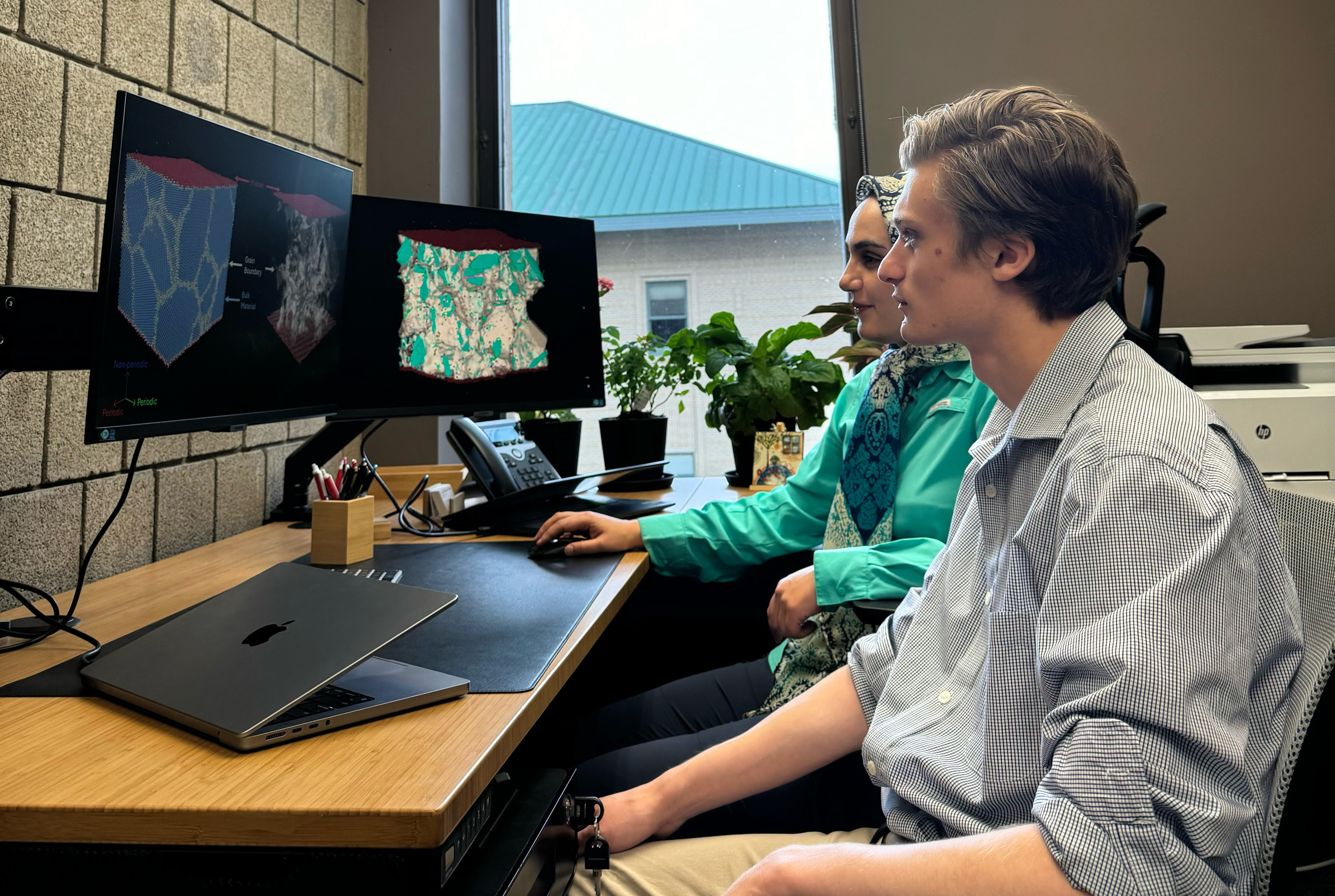
Scott Institute Seed Grant Helps Demystify Hydrogen’s Damaging Effects on Metals
By Cody Januszko
Media Inquiries- Digital Communications Manager
Hydrogen (H) is the smallest atom in universe, yet it causes billions of dollars damage to high-strength metallic alloys through a phenomenon called H embrittlement. The embrittlement leads to reduction in ductility, fracture resistance, and thus service life of these alloys. While some aspects of this phenomenon were understood, others remain elusive, such as the formation of localized plasticity bands under crack surfaces. This phenomenon leads to abrupt crack growth and premature failure of structural components and has become more important as now H even is used as a fuel for many applications like jet engines. The main difficulty in understanding H embrittlement is that even at room temperature, H diffuses rapidly on different microstructural defects and its tracking is considerably challenging in experiments. Using and developing a unique numerical tool, S. Mohadeseh Taheri-Mousavi’s recent research project simulates H at a large polycrystalline scale with atomistic resolution, shedding light on these elusive parts of the phenomenon.
S. Mohadeseh Taheri-Mousavi, Assistant Professor of Materials Science and Engineering, was awarded funding for the project in the 2023 Scott Institute Seed Grants for Energy Innovation cycle. The 2023 Seed Cycle was the Scott Institute’s 11th annual year of this type of funding. Since Seed Grants began in 2013, 80 research teams have split a total of $3.7 million in funding. These initial Seed grants have led to over $17 million in follow up funding. For the 2023 cycle, $230,000 was awarded across three faculty projects, including Taheri-Mousavi’s.
On a broader scale, this SEED grant aligns with the global goal set by the Intergovernmental Panel on Climate Change (IPCC) for reducing greenhouse gas emissions by 2050. "This research is important because the production of metals contributes a significant portion of CO₂ emissions, e.g., about 28% of industrial emissions just come from steels and aluminum productions" said Taheri-Mousavi. "Even if we optimized everything in the production process, we still wouldn’t be able to hit the 2050 CO₂ goal. The only way to achieve this goal is by reducing metal production, and H embrittlement is a hurdle as it is the most critical life limiting factor of high-strength metals."
With funding from the SEED Grant, Taheri-Mousavi and PhD student Matthew Melfi have initiated large-scale atomistic simulations to understand how H interacts with various defect types in high-strength alloys. Defects control plasticity in metals and their activities can be altered by the presence of H, thus changing the overall performance of these materials. By comprehending H-defects interactions, the research aims to enable improved metal designs that are more resistant to H embrittlement.
“Working collaboratively with other researchers is highly important to see the whole picture,” said Melfi. “There are many different aspects that can be explained by experiments or simulations. By collaborating and comparing these results, the whole phenomenon can be better understood.”
Taheri-Mousavi stressed the importance of seeing the whole landscape. “This is a very challenging problem,” said Taheri-Mousavi. “No single element alone can give us all the answers—each one has an impact on the research. By understanding how various defect types contribute differently and in combination, we can form a more complete picture of the problem and develop strategies to mitigate its detrimental effects.”
The research in ongoing, but Taheri-Mousavi and Melfi have already begun sharing some results. At CMU Energy Week 2024, Melfi presented findings during the Student Poster Competition. Melfi’s poster won the first-place prize.
The Scott Institute recently announced the 2024 Seed Grant awardees. Taheri-Mousavi received a grant for equipment repair in this cycle.